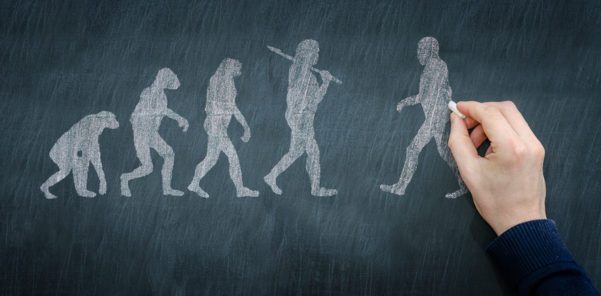By Jack Wilkie
As belief in a literal, six day creationism is mocked more and more all the time, many of us often have opportunities to defend what we believe. However, having the right core beliefs and the right intentions doesn’t mean we always have the right proofs. In fact, arguing with the wrong proofs can actually hurt our case. A true belief can’t be built on a foundation of false proofs. So, let’s look at four common arguments used, why they shouldn’t be used, and what we can use instead.
Evolution is just a theory.
The scientific definition of “theory” is much different than the one used in daily conversation. Evolution isn’t referred to as a theory in the same way I might claim I have a theory about who keeps borrowing my phone charger without replacing it. Dictionary.com defines a scientific theory as “a coherent group of propositions formulated to explain a group of facts or phenomena in the natural world and repeatedly confirmed through experiment or observation.” So, saying “evolution is just a theory” doesn’t get us very far in a discussion about science.
What we should argue instead: rather than calling it “just a theory,” we can make the case that evolution doesn’t qualify as a scientific theory. Nobody can claim that Darwin’s macroevolution has ever been “confirmed through experiment or observation.” Darwin based his theory on seeing small changes among the finches of the Galapagos Islands. That’s a far cry from proof that life evolved from a single celled organism in a primordial ooze. Don’t say evolution is just a theory. Ask how it qualifies to be considered a theory at all.
If we evolved from monkeys, why are there still monkeys?
Despite what the image above portrays, nobody really makes the argument that we came from monkeys. Rather, they hold that we belong to the same family and can draw our evolutionary lineage back to a common ancestor. If we show that we misunderstand what others believe, they won’t be very inclined to listen to our refutations.
Rather than making that argument, we should challenge the idea that they do hold, that we are distant cousins with a shared evolutionary lineage. The fact is, there is no evidence for that being the case. We don’t have fossils of the original ancestor (“the missing link”) or any variations in between the ancestor and the creatures we have today. Instead, what we have are a series of frauds that have been presented as evidence only to be debunked as either fully ape or fully human.
Science is biased.
There’s a widespread perception among those that deny creationism that Christians are opposed to science. We should be careful not to play into that stereotype. By saying that science is biased, we are claiming that no matter what science shows us, we won’t believe it.
Instead, we need to define our terms. Science itself is not biased, but scientists are. Disagreeing with scientists is not the same as disagreeing with science. Scientists are constantly reviewing and changing what they’ve previously believed. They are not infallible. Science, on the other hand, is something that is discovered. It does not belong to one side or the other. Rather than disagreeing with science, we have to make it clear that we disagree with certain scientists, and that we can present evidence for how science backs up our claims.
Unprovable (or debunked) anecdotes.
It’s enticing to throw out arguments like “Darwin recanted his beliefs on his deathbed,” or “Einstein once destroyed evolution as a college student,” or even “NASA found evidence for the prolonged day in Joshua 10,” but those range from either unprovable to patently false. When dealing with skeptics we need not rely on such unprovable claims as they would just give the impression that our beliefs are based on shaky evidence.
Instead we should stick with the facts that we know to be true and irrefutable, such as; something can’t come from nothing, life can’t come from non-life, and macroevolution is hopelessly lacking in the fossil record.
I truly believe the Genesis record has it right, and I believe that science provides the proof to back up that belief. But how we argue and present what we believe must be carefully examined. We can’t go into battle with a weak, fragile sword. Make sure to know your arguments and to use them accurately to defend God’s word.








